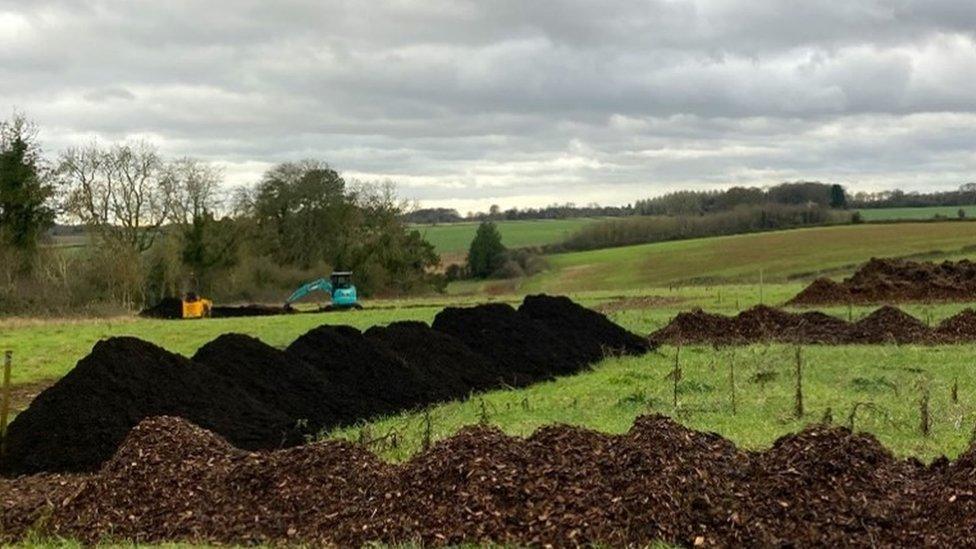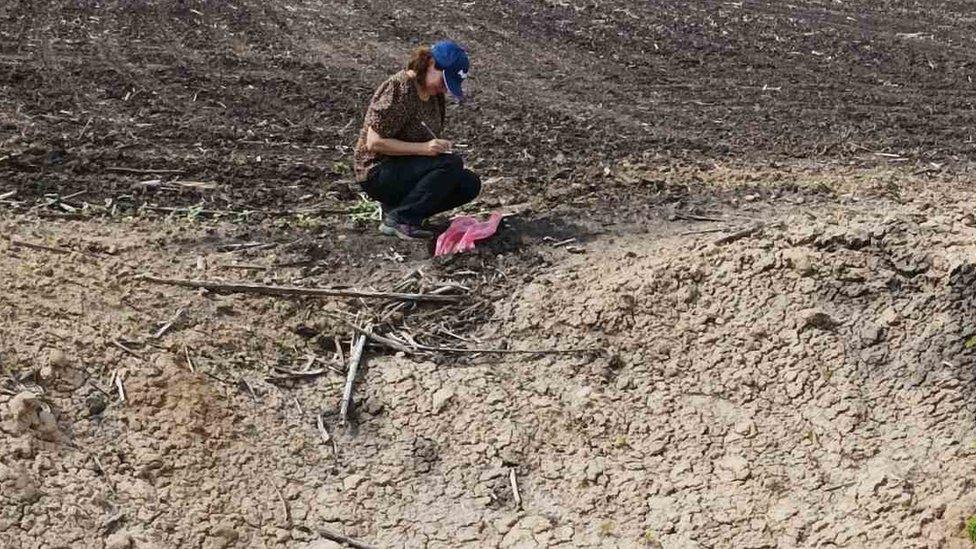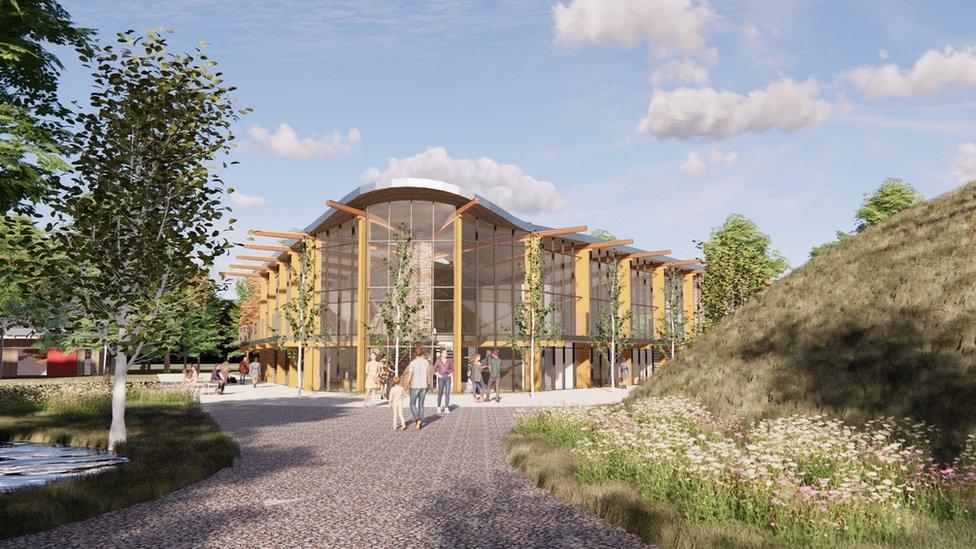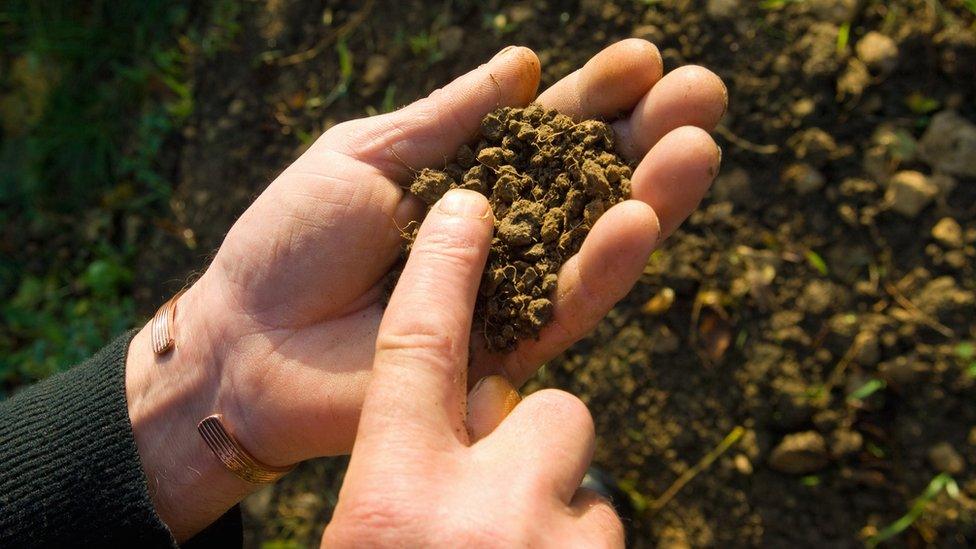Cirencester 'zero dig' garden to teach climate friendly farming
- Published

Zerodig Earth and The Farming and Wildlife Advisory Group (FWAG) hope the project will eventually become a commercially viable business
More than £100,00 has been granted to create a 'zero dig' market garden to teach students about climate and nature-friendly farming.
The seven-acre site, partly funded by a £110,000 grant by the Esmée Fairbairn Foundation, will adjoin the Royal Agricultural University in Cirencester.
The Zerodig project aims to highlight "agroecology and regenerative farming".
Once running, it is hoped the site will become a commercial food business.
The funding will be used to employ a lead grower and project manager for the first two years of set-up.

The seven-acre site will adjoin the Royal Agricultural University in Cirencester
As part of the project run by Zerodig Earth and The Farming and Wildlife Advisory Group (FWAG), vegetables at the site will be grown using the "Zerodig" method, a form of regenerative horticulture designed by Christopher Upton and Dr Mario Peters, that includes no soil disturbance.
It is hoped the project will eventually become a commercially viable fruit and vegetable business, supplying produce to the local community.
The project also aims to teach 1,000 agricultural students per year, boost the understanding of the benefits of agro-ecological food production, strengthen local economy and allow community collaboration for sustainable, healthy food.

Follow BBC West on Facebook, external, X, external and Instagram, external. Send your story ideas to: bristol@bbc.co.uk , external
Related topics
- Published20 December 2023

- Published27 September 2023

- Published23 January 2023

- Published24 October 2022
